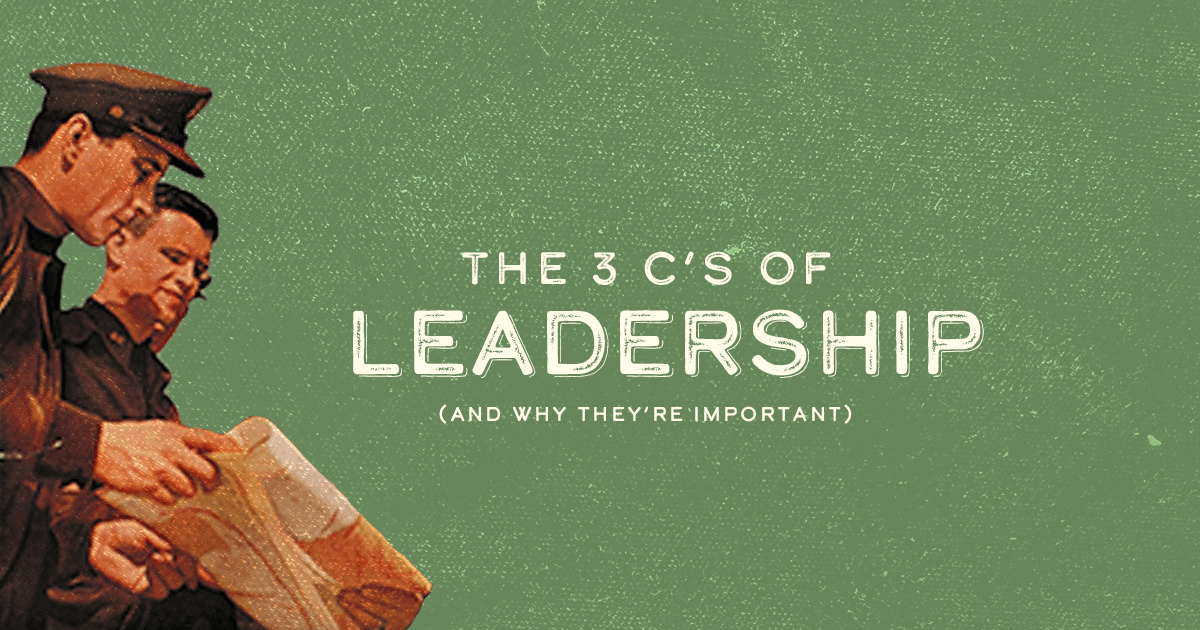The Three C's of Leadership (and how they impact your company)
November 15th, 2024 | 3 min. read
By Tara Larson

Why do employees really show up to work? What motivates them to go beyond the bare minimum and stay engaged, day after day?
It’s tempting to assume that a steady paycheck is enough, but many employees leave not because of the work itself but due to poor leadership.
Many of us managers and owners forget that our employees are real people dealing with a wide variety of issues and challenges. Not to mention, they're a part of our lives for 40 hours (or more) a week.
Employee retention is tough—and many leave in droves because of poor leaders.
We have to be better. This starts with caring about our team and their well-being and measuring performance, engagement, and culture.
At Whirks, we’ve had our share of growing pains—turnover, low morale, and the occasional tough week. As the People Services Manager, I’ve seen how these challenges shape a team, and I’m committed to helping small businesses tackle HR issues, address risks, and uncover strong leadership within their organizations.
Leadership is a word we hear all the time, but what does it really mean for your business? And how can you cultivate it within your company?
What Does Leadership Truly Mean?
If you google leadership, you'll find almost four billion results. Everyone has developed their own definition of the word, as well as the traits that a person needs in order to be a great leader.
Experts agree that people in leadership positions need identifiable attributes or competencies to help them succeed. Where they fail is their inability to identify the mindset of the leader as the most fundamental of them all.
The recurring theme of leadership podcasts and articles is focused on helping our employees feel engaged. We can do this by understanding who they are and what they need from us.
We need leaders from all levels to understand that leadership is more than a title or position; it’s a way of life.
Employees need great leaders - but many experience a disengaged manager who doesn't care about the organization or the employees.
This is the opposite of what leaders do. It does not begin with the employee. Leadership begins with the leader.
The Army’s definition of leadership is "the process of influencing people by providing purpose, direction, and motivation to accomplish the mission and improve the organization.”
I learned that I followed great leaders because they were followable. They were an example of what to do—and I wanted to be like them. Again, leadership begins with the leader.
The Army emphasizes three core principles of leadership, the Three C's: competence, commitment, and character. In this article, I’ll break down each of these and show you how to apply them to strengthen leadership within your business.
1. Competence
A true leader begins with a decision—a commitment to becoming the leader their team needs. Your internal desire to be a great leader is more valuable than your initial actions.
In the business world, leaders need to know their company inside out and surround themselves with technical experts in order to learn from them. Competent leaders never stop learning and never stop developing, personally and professionally.
2. Character
Leaders must be an example for others to follow.
That starts with being the one with the highest character—knowing what to do legally, morally, and ethically.
As Douglas MacArthur said, "He does not set out to be a leader, but becomes one by the equality of his actions and the integrity of his intent." Leaders make decisions based on what they believe and what they have personally lived through.
3. Commitment
The third “C” of leadership is commitment—a leader’s unwavering dedication to their team and organization. True commitment means being fully invested in the success of the people you lead and the goals you strive to achieve together.
In the business world, commitment often revolves around a shared vision, core values, or a business plan. It involves making decisions that balance risk and reward, choosing the path that offers the greatest impact while staying aligned with the organization’s mission.
However, many workplaces fall short when measuring commitment because they focus on the wrong factors. Genuine commitment isn’t just about being engaged during good times—it’s about staying resolute during challenges, obstacles, and uncertainty. Leaders must evaluate their own level of commitment and expect the same from their teams.
Commitment isn’t fleeting. It’s a deeper, more enduring quality than engagement. It’s what drives a leader to guide their team through both successes and struggles, ensuring they remain motivated and inspired, no matter the circumstances.
Do you embody that level of commitment? And just as importantly, do you encourage and cultivate it within your team?
Use Good Leadership as the Catalyst to Great Retention
Now more than ever, we owe our employees great leadership. Your business can't get one step better every day if you've got people sitting in the wrong seats.
Leadership is the best tool to possess as a business owner. It attracts and retains wonderful employees who want to support the vision and mission of your company.
This is why it's important for a leader to commit to the team and focus on embodying competency, commitment, and character.
Strong leadership starts with a clear vision.
Discover how aligning your team with your company’s mission, values, and culture can create a foundation for success. Read our article Values, Mission, and People: The Leadership Umbrella.
Topics: